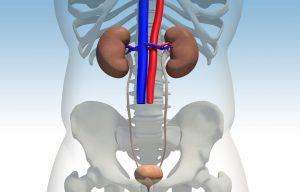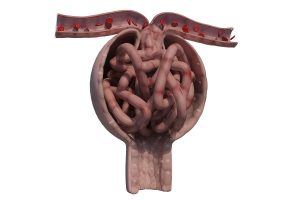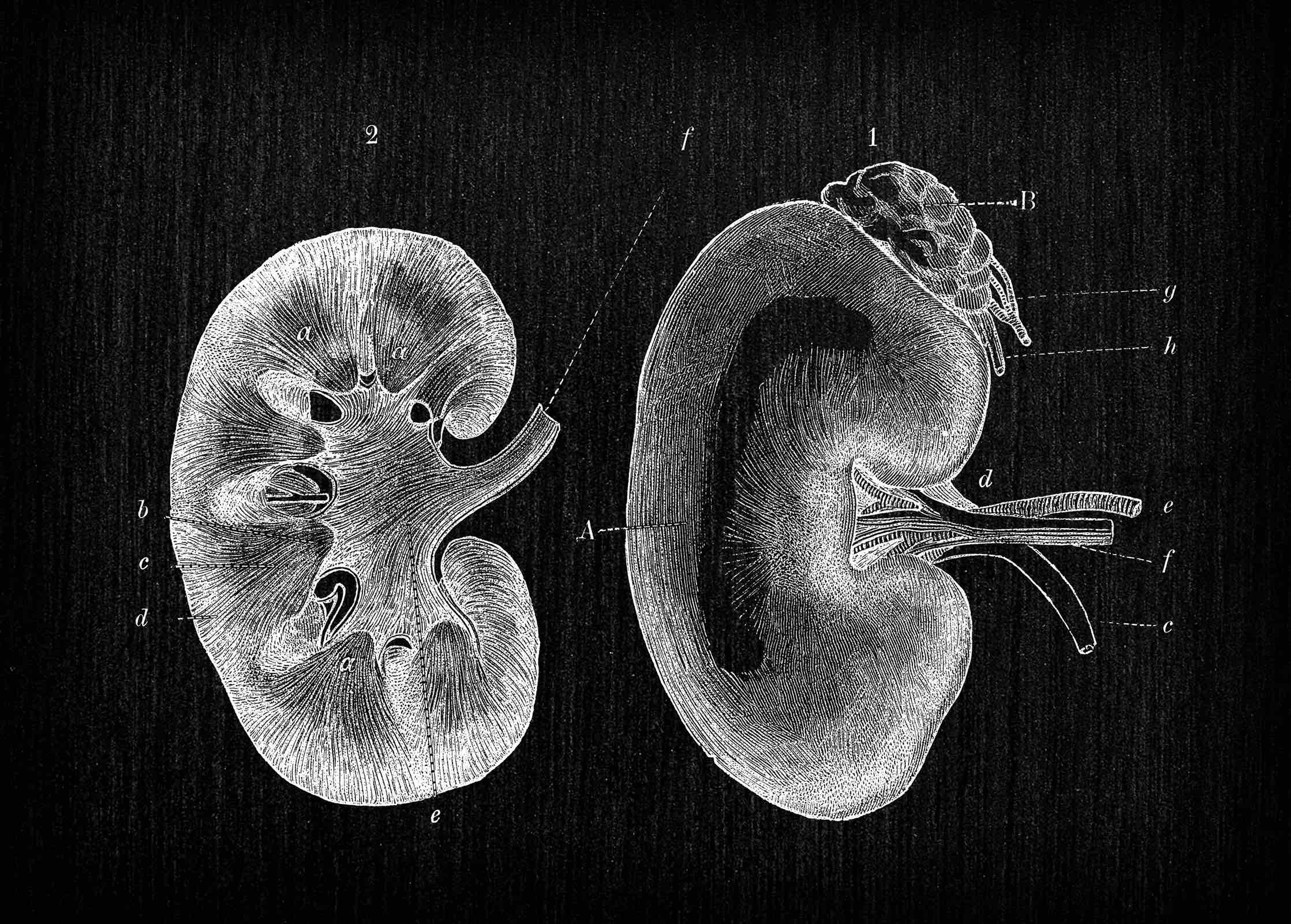Where are the kidneys and why do we need them?
The kidneys are a pair of bean-shaped organs, each about the size of your fist. They are located near the spine, below the rib cage, and one on each side.
Your kidneys keep the blood clean and chemically balanced.
The kidneys filter 200 quarts of blood and produce 2 quarts of waste products and water each day. Wastes in the blood come mostly from the breakdown of food and beverages. If the kidneys did not remove these wastes, they would build up in the blood and damage the body.
The removal of wastes and water occurs in tiny structures in the kidneys called nephrons. Your kidney has about a million nephrons. The nephron consists of a blood-filtering component, the glomerulus, that keeps proteins and cells in the bloodstream and allows fluid and wastes to pass through. It is connected to a long cylindrical tube known as a tubule. A complicated chemical exchange takes place in the tubule, as waste materials and water pass along it to become urine.
The wastes and water become urine, which flows to the bladder through tubes called ureters. The bladder stores urine until releasing it through urination.

What are signs of kidney disease?
Many people with kidney disease do not feel sick but may have abnormalities of one or more blood and urine tests. In other occasions, a number of signs and symptoms may develop. A few are listed below.
- Presence of blood and/or protein in the urine
- Elevation of chemicals in the blood that the kidney should remove, such as creatinine and blood urea nitrogen (also known as BUN)
- High blood pressure
- Swelling of hands or feet
- Need to urinate more often, or less often
- Fatigue, loss of appetite, nausea, vomiting
What causes kidney disease?
Although the cause of kidney disease is often not known, there are many known causes such as:
- A variety of infections
- Immune disorders where the body attacks some of its own tissues
- Toxic injury due to medicines or illicit drugs use
- Abnormalities in kidney development which are particularly common in children
However, the most common causes of kidney disease are two potentially controllable diseases: diabetes and high blood pressure

Patient Resource Sheet
Quick note: This post is to be used for informational purposes only and does not constitute medical or health advice. Each person should consult their own doctor with respect to matters referenced. Arkana Laboratories assumes no liability for actions taken in reliance upon the information contained herein.



